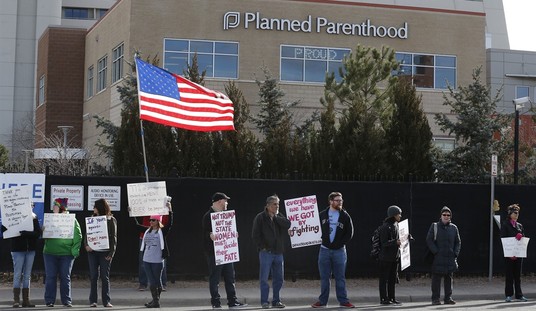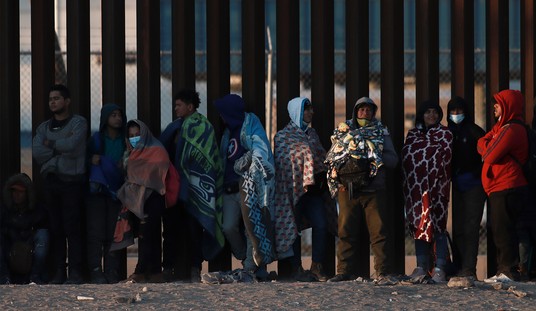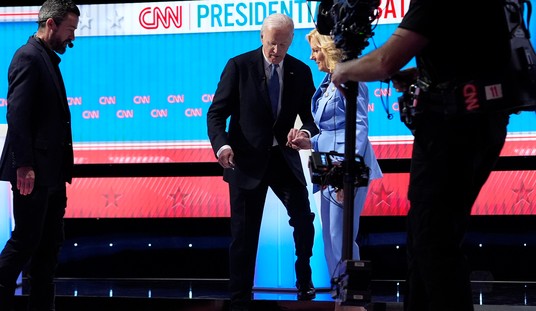As the oil spill in the gulf continues to cast a shadow over the perceived competence of the Obama administration, two new reports will also stoke doubts about its cleanliness. Erika Lovely writes today at Politico that Barack Obama has been the biggest recipient of British Petroleum largesse over the past 20 years, taking over $77,000 during his career from the oil company whose rig currently is dumping thousands of barrels of oil into the Gulf a day (via Newsbusters):
While the BP oil geyser pumps millions of gallons of petroleum into the Gulf of Mexico, President Barack Obama and members of Congress may have to answer for the millions in campaign contributions they’ve taken from the oil and gas giant over the years.
BP and its employees have given more than $3.5 million to federal candidates over the past 20 years, with the largest chunk of their money going to Obama, according to the Center for Responsive Politics. Donations come from a mix of employees and the company’s political action committees — $2.89 million flowed to campaigns from BP-related PACs and about $638,000 came from individuals.
On top of that, the oil giant has spent millions each year on lobbying — including $15.9 million last year alone — as it has tried to influence energy policy.
During his time in the Senate and while running for president, Obama received a total of $77,051 from the oil giant and is the top recipient of BP PAC and individual money over the past 20 years, according to financial disclosure records.
What did BP get for its cash? The Washington Post wonders the same thing, reporting on a waiver on a required environmental analysis for the very rig that blew:
The Interior Department exempted BP’s calamitous Gulf of Mexico drilling operation from a detailed environmental impact analysis last year, according to government documents, after three reviews of the area concluded that a massive oil spill was unlikely.
The decision by the department’s Minerals Management Service (MMS) to give BP’s lease at Deepwater Horizon a “categorical exclusion” from the National Environmental Policy Act (NEPA) on April 6, 2009 — and BP’s lobbying efforts just 11 days before the explosion to expand those exemptions — show that neither federal regulators nor the company anticipated an accident of the scale of the one unfolding in the gulf. …
The MMS mandates that companies drilling in some areas identify under NEPA what could reduce a project’s environmental impact. But Interior Department spokesman Matt Lee-Ashley said the service grants between 250 and 400 waivers a year for Gulf of Mexico projects. He added that Interior has now established the “first ever” board to examine safety procedures for offshore drilling. It will report back within 30 days on BP’s oil spill and will conduct “a broader review of safety issues,” Lee-Ashley said.
BP’s exploration plan for Lease 206, which calls the prospect of an oil spill “unlikely,” stated that “no mitigation measures other than those required by regulation and BP policy will be employed to avoid, diminish or eliminate potential impacts on environmental resources.”
While the plan included a 13-page environmental impact analysis, it minimized the prospect of any serious damage associated with a spill, saying there would be only “sub-lethal” effects on fish and marine mammals, and “birds could become oiled. However it is unlikely that an accidental oil spill would occur from the proposed activities.”
Kierán Suckling, executive director of the environmental group Center for Biological Diversity, said the federal waiver “put BP entirely in control” of the way it conducted its drilling.
Connections? I’m sure this is just a coincidence. Hope and change, baby!
On the other hand, it’s very possible for Republicans to overplay their hand on this issue. While the temptation to expose Obama as nothing more than a Chicago pol willing to do the bidding of his donors will be sorely tempting, in this case it will end up damaging the effort to increase domestic production of oil. As Ron Bailey wrote yesterday at Reason, everyone understands that drilling entails risk. We need to minimize risks as much as we can, but we also need that oil and natural gas. And if we don’t get it ourselves, others will get it first — and probably take less care than we do in drilling for it.







Join the conversation as a VIP Member